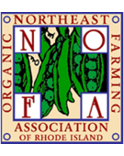FDA released Food Safety Preventative Controls Rule
After a lengthy rule-making process with two major comment periods, the Final Rule for Part I of the Food Safety Modernization Act (FSMA) — the Preventative Controls Rule governing food processing facilities — was released earlier this month by the Food & Drug Administration (FDA).
This is a massive document. The National Sustainable Agriculture Coalition (NSAC) offered an initial analysis at their food safety task force. NSAC said the FDA listened to input from our advocates in the small farm sector and made significant changes to their previous “farm” definition. Now, standard farm ownership as asll as packing and holding operations are no longer automatically categorized as facilities” requiring FDA registration and suvjected to more regulation. See NSAC’s Ferd Hoefner’s statement below.
In late October, the Produce Rule will be releases. This will have a more pronounced effect on small, grassroots farming operations.
While these are FDA’s “Final Rules,” there may still be an opportunity to influence the upcoming FDA Guidances.
FDA releases FSMA human, animal food control rules
from The Hagstrom Report
The Food and Drug Administration (FDA) today released the final rules on preventive controls for human and animal food under the Food Safety Modernization Act (FSMA).
“Today’s announcement sets us on the path to a modern food safety system that will prevent illnesses and continue to build confidence in the safety of the food served to our families every day,” said FDA Acting Commissioner Stephen Ostroff said in a news release.
“The two rules finalized today, the preventive controls rules, focus on implementing modern food manufacturing processes for both human and animal foods,” Ostroff added.
“Today’s announcement will ensure that food companies are taking action and working with the FDA to prevent hazards to customers on the front end, rather than waiting to act until an outbreak has occurred.”
“We’ve been working with states, food companies, farmers and consumers to create smart, practical and meaningful rules,” said Michael Taylor, the FDA deputy commissioner for foods and veterinary medicine.
“And we have made a firm commitment to provide guidance, technical assistance and training to advance a food safety culture that puts prevention first,” Taylor said.
Bill Marler, a prominent food safety lawyer based in Seattle, told The Hagstrom Report in an email said that the rule amounted to Taylor “implementing HACCP [Hazard Analysis Critical Control Point principles] at FDA as he did at FSIS,” a reference to Taylor’s previous position at the Agriculture Department’s Food Safety and Inspection Service, which handles inspection of meat, poultry and egg products.
“In many respects these new rules are based on the rules applied to the fish industry some time ago and what the LGMA [the California Leafy Green Products Handler Marketing Agreement] self-imposed after the spinach outbreak of 2006,” Marler said. “All in all,” he added, the rule is “good, long term” policy.
Most industry groups said they had only begun to analyze the rule, but some had more specific reactions.
Ferd Hoefner, policy director for the National Sustainable Agriculture Coalition, said its members had been concerned that farms would be classified as “facilities and thus subject to rules designed for facilities.”
But Hoefner said that NSAC’s “initial read” of the rule indicates that “the revised definition includes positive changes to account for the diversity of farm management structures and physical compositions that we believe will provide more clarity to farmers attempting to discern whether this rule applies to them.”
American Frozen Food Institute President and CEO Kraig Naasz said he “commends FDA for its current approach to FSMA implementation.”
But Naasz noted that the AFFI is part of a coalition of more than 60 food groups that has urged the Obama administration to ask for appropriations rather than rely on user fees to pay for implementation.
Food Marketing Institute Vice President of Food Safety Programs Hilary Thesmar stated, “We commend the agency for its commitment to transparency, guidance and education throughout the rulemaking process.”
“FSMA represents the most sweeping change to our food safety laws in over in 70 years, and we will continue to work with FDA to analyze the rules and assess implications for the grocery industry,” Thesmar said.
National Association of State Departments of Agriculture CEO Barbara Glenn said “While we are still reviewing the rules, we appreciate FDA’s openness and creating a second chance to comment on the rules last year. The new prevention-based approach to food safety requires FDA to get the rules right and a change in the culture of FDA. Obtaining adequate federal funding and conducting stakeholder education are the only pathways to a workable preventive approach to food safety.”
